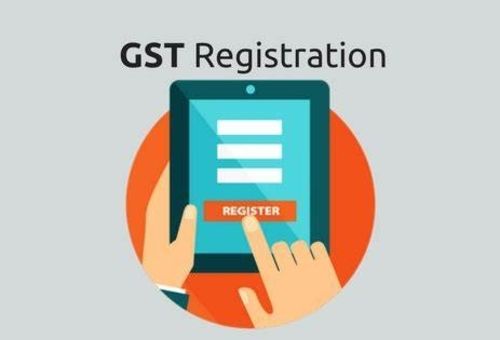The Ultimate Guide to Simplifying the GST Enrollment Refine and Requirements for Small Company Owners
.jpg)
Understanding GST Basics
To comprehend the basics of the Item and Solutions Tax (GST) system, little company proprietors have to initially understand its underlying implications and concepts. Under the GST regime, organizations are needed to collect and sign up tax obligation on behalf of the federal government, guaranteeing openness and compliance.
One of the key principles of GST is input tax credit score, which allows services to assert credit scores for taxes paid on their purchases. Comprehending these fundamental concepts is important for tiny organization proprietors to browse the intricacies of the GST system and ensure compliance with the law.
Qualification Standards for Enrollment
Having actually developed a fundamental understanding of GST concepts, tiny business proprietors have to currently fulfill particular eligibility criteria to proceed with the registration process. In India, entities took part in the supply of products or services with an annual aggregate turnover exceeding Rs. 40 lakhs (Rs. 10 lakhs for special category states) are needed to sign up for GST. Furthermore, specific organizations such as those involved in inter-state supply of goods, casual taxable persons, and those required to pay tax obligation under the reverse cost system should register for GST irrespective of their turnover. Moreover, services that were registered under the previous tax regime (BARREL, solution tax, etc) are also mandated to sign up under GST. Farming services that only provide create out of primary production are exempt from GST enrollment. It is critical for entrepreneur to carefully analyze their eligibility based upon these requirements to ensure conformity with the law and prevent any kind of charges for non-compliance.
Documents Required for GST Enrollment

Simplified Enrollment Refine Actions
Tips for Ensuring Compliance
To maintain regulatory adherence and functional honesty, thorough oversight and positive steps are pivotal in ensuring conformity with GST needs for tiny service proprietors. Tiny organization owners should remain upgraded with GST guidelines, submitting due dates, and any adjustments in tax rates to stay clear of penalties and keep a great standing with tax authorities. One essential pointer for conformity is to keep exact and in-depth records of all purchases, including billings, receipts, and expenditures associated to GST. Regularly integrating financial documents with GST returns can help in determining and rectifying any type of disparities quickly. In addition, conducting routine internal audits or seeking specialist assistance can make sure that the business is complying with all GST regulations correctly. It is also vital for small company proprietors to invest in GST-compliant accountancy software program that can improve the tax obligation declaring process and decrease mistakes. Attending GST understanding workshops or training programs can boost understanding and conformity with GST laws, ultimately benefiting the service in the lengthy run.
Final Thought
In conclusion, tiny service proprietors should understand the basics of GST, fulfill the qualification criteria, gather essential documents, and adhere to the streamlined registration process actions to make sure compliance. By simplifying the GST enrollment procedure and needs, little company proprietors can stay clear of fines my site and operate their businesses efficiently within the legal structure - Singapore GST Registration. It is crucial for local business owners to remain compliant and enlightened with GST policies to maintain an effective company procedure
Little business owners looking for GST registration have to ensure they collect and submit the essential files to finish the registration procedure effectively. The records required for GST enrollment generally consist of proof of service registration or consolidation, PAN (Irreversible Account Number) card of the service identification, entity and address evidence of the promoters/partners/directors, photographs, address evidence of the area of company, financial institution account declarations or canceled cheques, and consent types. Participating in GST awareness workshops or training programs can improve understanding and conformity with GST regulations, eventually profiting the organization in the long run.
By simplifying the GST enrollment procedure and requirements, small company proprietors can stay clear of penalties and operate their organizations smoothly within the lawful structure. It is essential for little organization owners to stay certified and enlightened with GST regulations to maintain an effective service procedure.
Comments on “How to Navigate Singapore GST Registration for Your Business”